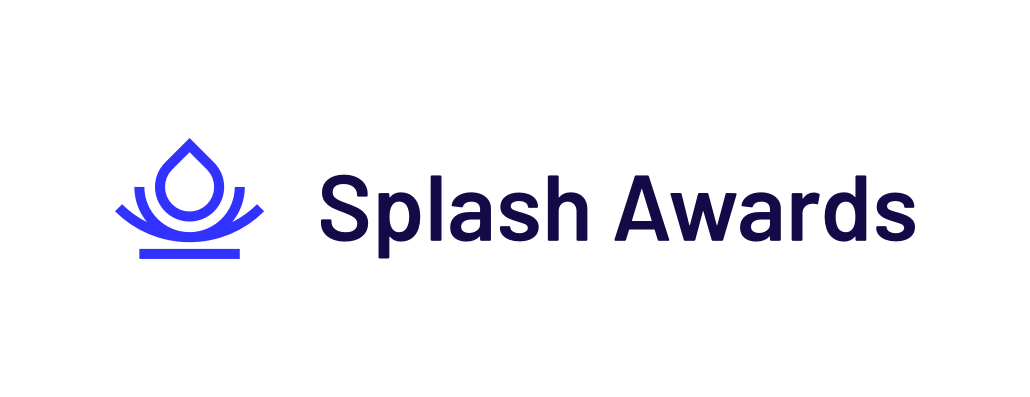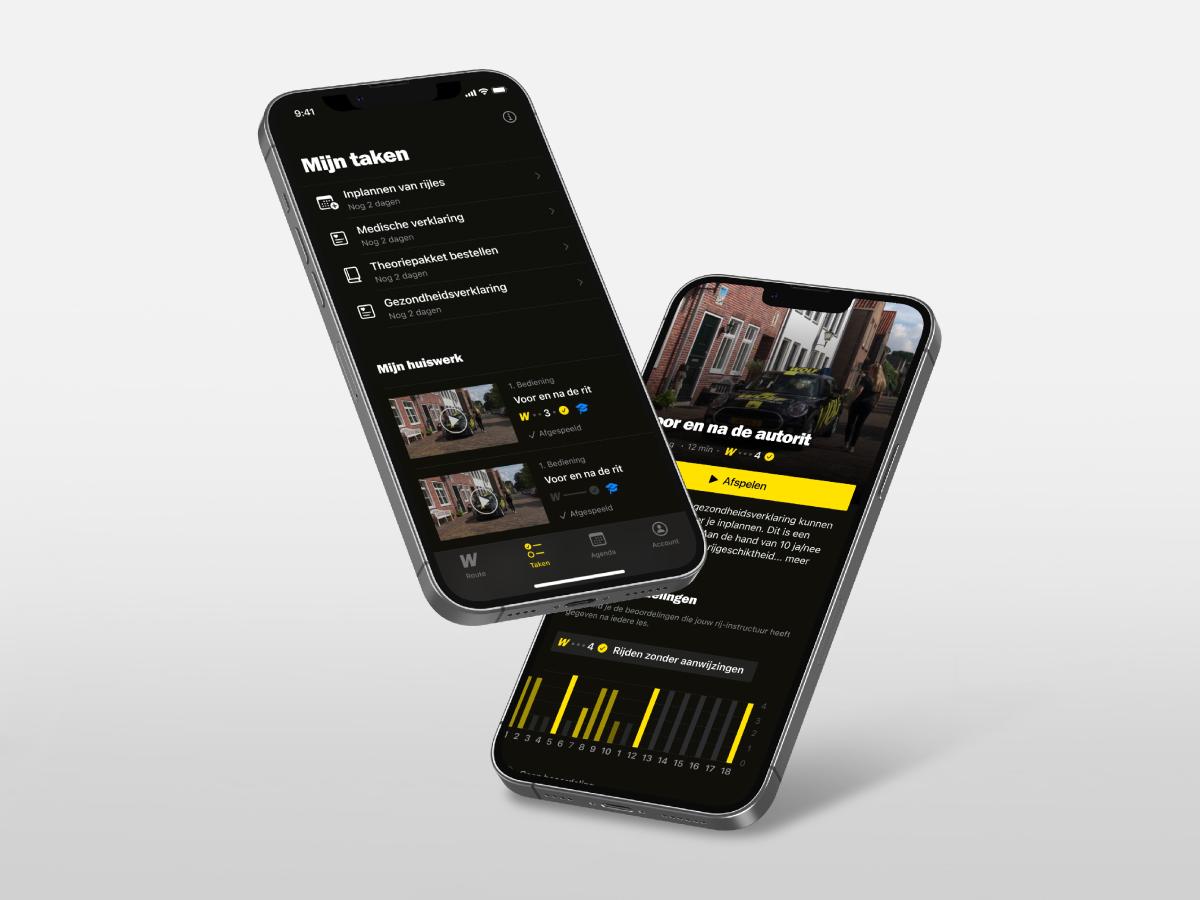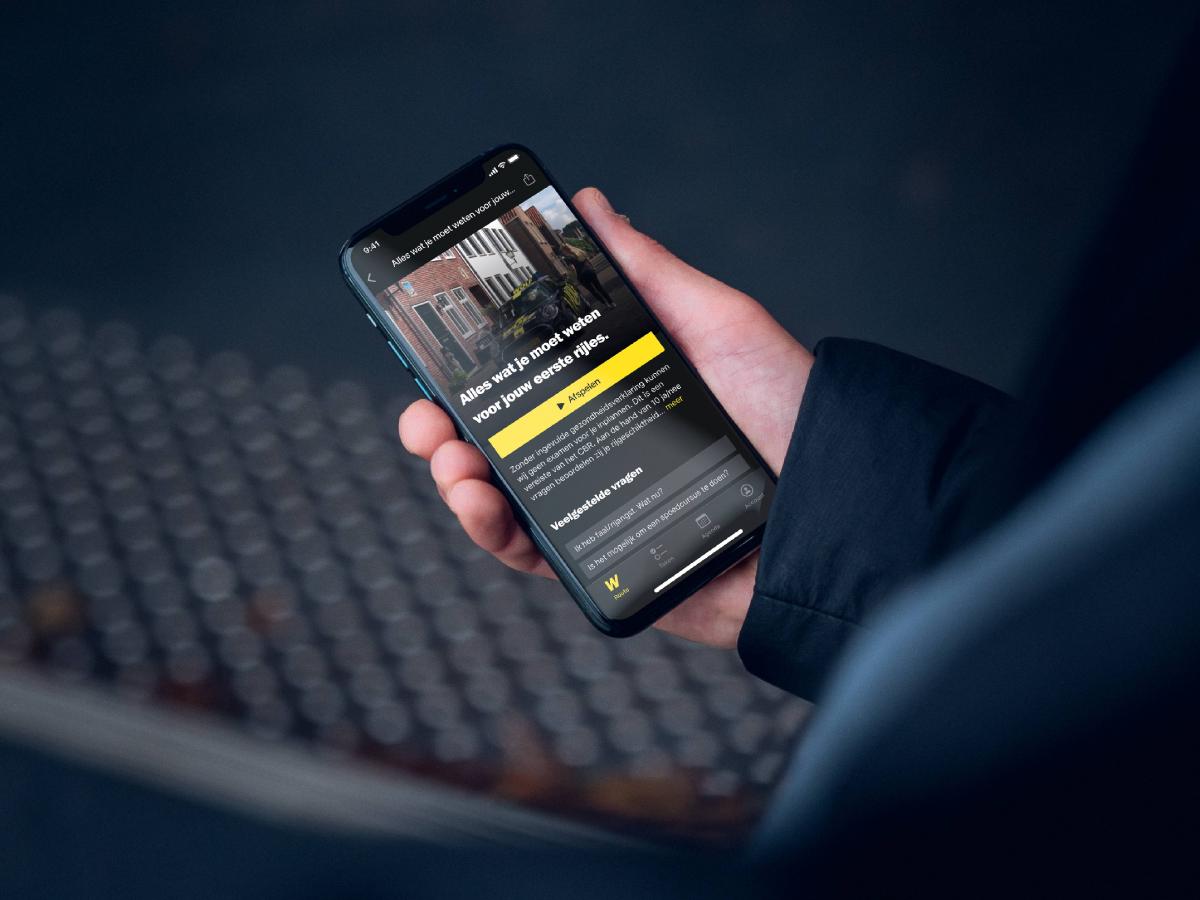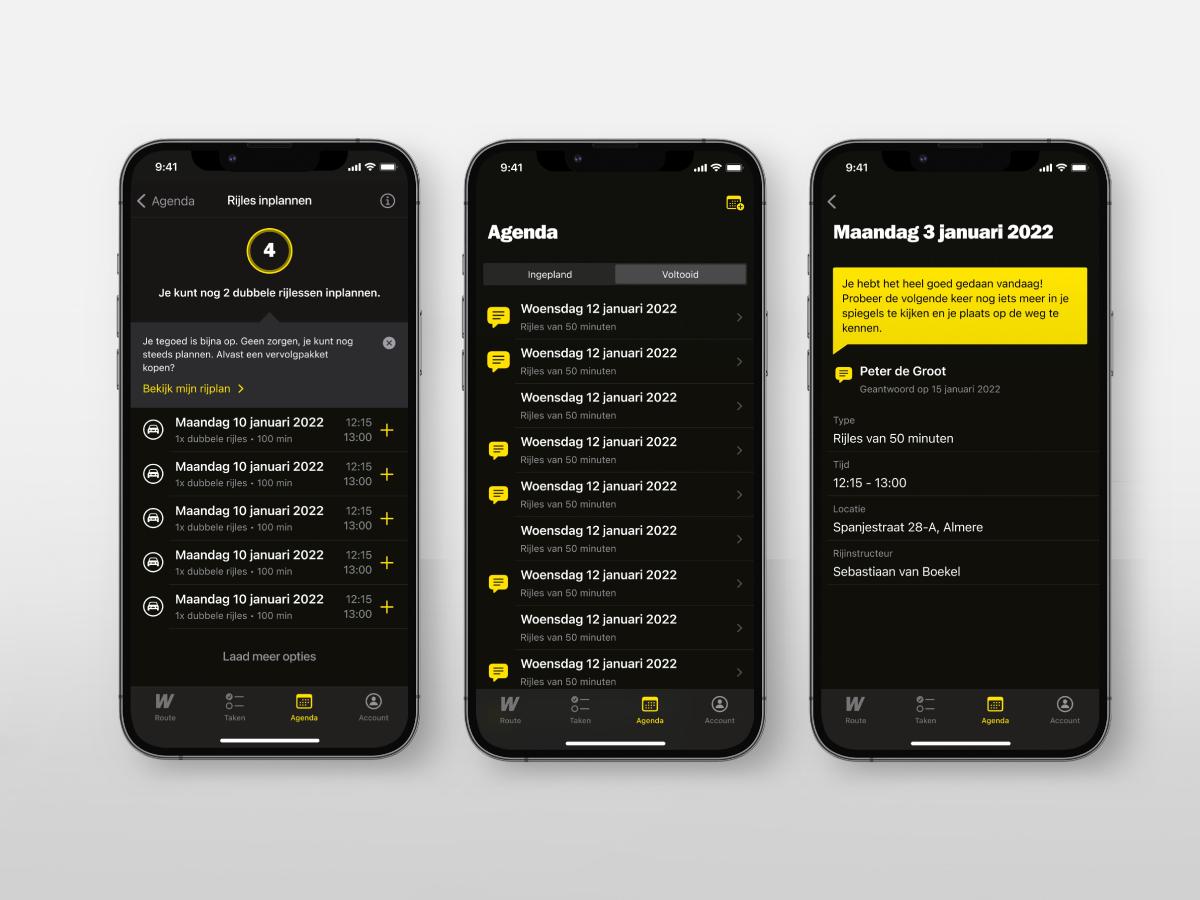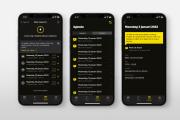Successful digital transformation for one of the largest Dutch driving schools
Case video
Case description
The collaboration with WOLF started with a strategic deep dive. Together we defined our challenge: how can we, as a driving school, keep adding value for our increasingly demanding and digital savvy target group? We constructed a strategic roadmap. On this roadmap we added various optimizations and projects that are of great added value within the customer journey of WOLF. We used Design Sprints to prototype several concepts and tested these with the target group.Based on the roadmap and tested concepts, we started with the first three important challenges for WOLF.
1. Developing a video-app that supports students during their driving lessons.
Driving lessons are expensive. When students are more prepared, less driving lessons are needed. In order to offer students even more personalised advice, we wanted to develop an app that includes additional explanation videos based on their progress.
2. Make sure that students can plan their lessons in the app
Previously, the instructor or the customer service were responsible for planning in new lessons. Every new lesson or adjustment had to be discussed with the student for confirmation. This was a time-consuming, error-sensitive and inefficient process. In addition to relieving customer service, WOLF also wanted to lower the threshold for students to proactively plan their classes by creating an app where they could easily plan and pay without having to make a phone call.
3. Improve the marketing results in a competitive market
Marketing is essential for a continuous influx of new students. Back in the days, WOLF was one of the first driving schools to approach online marketing in a professional way. When competitor driving schools started using online marketing as well, WOLF’s marketing results decreased. WOLF had to renew their online marketing approach to decrease the cost per lead and increase the quality of the leads. What made WOLF’s marketing strategy complex was the fact that they have to deal with differing capacity per city. Instead of a national approach, the campaigns have to focus on specific regions based on the changing capacity of instructors and students.
Case goals and results
Trial lessons increased with 29.68%Thanks to the improved online marketing campaigns, the quality of the leads substantially increased (read: less free time-slots) and the trial lessons increased with 29.68%, even though the marketing costs stayed the same.
Class cancellations dropped by 50%
When a student cancels last minute, the other students of the instructor are notified through SMS whether they would like to book the free time-slot. This has resulted in a staggering 50% drop of class cancellations. During the pandemic, this turned out to be a crucial efficiency leap. When the lockdown ended and WOLF was allowed to resume their driving lessons, this was communicated immediately through the app. The time-slots filled up quickly which saved WOLF literally thousands of phone calls.
Customer service became 250% more efficient
By now, almost all students use the app to plan their lessons. This results in substantial time saving. Employees of customer service are able to manage 2.5X more cars than before. The customer service became 250% more efficient.
Customer satisfaction has never been as high. Students like having control over their planning. Through clear videos and training they are better prepared for their lessons. They can also see which skills they still need to work on to pass their exam. 96% of the customers recommend WOLF with an average score of 9.3/10 (source: klantenvertellen.nl).
Challenges
Data integrations between internal systemsBy integrating important systems for WOLF such as management dashboards, financial administration and ERP (with information about students and the occupation of the instructors), we created valuable new insights. The marketing dashboard now shows how many leads each marketing campaign raises, which percentage of leads converts to customers after a trial lesson and what the total customer value is. The dashboard also allows WOLF to determine the availability of the instructors per location and time period. The connection to ERP allows students to plan their own lessons and pay through iDEAL. Thanks to the connection with the financial administration, payments are booked into the administration right away. In short, the insights in essential company information allow WOLF to substantially increase the efficiency of the business operations.
Using Drupal with an API-first approach
The idea early on was to build a webapp that could also serve as a hybrid mobile app, so we could make use of native functionalities (like push notifications) and distribute to multiple platforms in a cost efficient way. Because we were going to build a single page application, we needed an API-first approach. The challenge was not only to serve content pages from the CMS, but also to keep track of a user's progress inside the app. A user will watch some videos and perform some other tasks the user will be prompted to. These tasks come from our Drupal configured endpoints. The progress in performing these tasks (and how many times they have been completed) is stored in the Drupal environment. We used endpoints from two different systems to keep track of a student's progress and to provide the correct task(s).
For example: the student has just completed a lesson. The instructor filled in a new scorecard, indicating which elements the student is thriving on, and which elements need a little more attention (homework). The student opens the app and reflects on the recently completed lesson. The student is able to see the instructor’s note, as well as possible homework assignments. A possible homework assignment can be to watch a video about parallel parking. The data from the scorecard comes from the ERP, the data to check if the student has completed this “homework” comes from our Drupal API and is stored to the Drupal environment once the task has been completed.
The data from these systems comes from one API gateway. The Drupal environment also serves as a proxy to the ERP’s available endpoints. This way, the frontend can be kept simple and scalable (only one base API URL to talk to). It also means that client keys / secrets of third party API’s, like the ERP, can be safely stored on the server side. The drupal environment also provides a set of basic configuration options for each endpoint, so we don’t have to deploy each subtle change to an endpoint.
Community contributions
https://www.drupal.org/project/env_dependenciesThis module makes it possible to enable development modules or uninstall them in production by a single drush command. This is mainly used for modules that do not need to be enabled and/or installed in the production environment. For example: UI or devel modules.
https://www.drupal.org/project/features_config_import
This module copies all the features config/install files to the sync directory and uses the Drupal configuration importer to import the files. This makes it possible to use the features module and split configuration in different directories, but still import it with the default drupal config importer.
Categories
Tools / Apps
Date when website went live
1 year 8 months ago
© Splash Awards Nederland 2023 - Terms of use - Privacy policy
